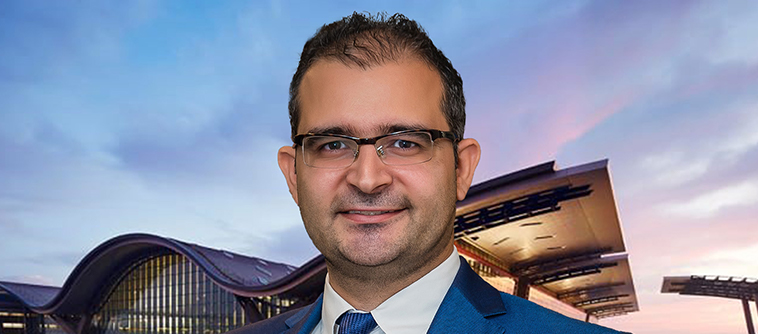
As a civil engineer, Hani Dakhil likes to explain things by bringing them back to the material world.
“When something is very rigid it breaks very easily,” he explained. “If a material is flexible, it is much more durable.” The same applies when mapping out your career, where having rigid plans can often lead to disappointment.
Dakhil, Regional Strategy & Growth Commercial Manager at American engineering company Jacobs in the Middle East, believes that defining a purpose for your career and being open to the opportunities that come your way will help your career move in the desired direction.
“You can have missteps along the way, but the purpose you have at any point in time will keep serving as your compass. Often, what you thought were missteps were learning moments which help you to further realign with your purpose.”
Dakhil, who is originally from Lebanon and has worked across six countries in Europe and the Middle East, says his purpose has been defined by having a tangible impact on people and their quality of life. This has helped him to build a career working on aviation and rail projects across the Middle East, including the design and construction of lines 1 and 2 of the $10 billion Riyadh Metro, as well as airports in Muscat and Doha, the latter of which was named the world’s best airport by Skytrax in 2021.
Following a moral compass
Dakhil is among a growing breed of leaders who manage to master both hard technical skills and softer social skills. It’s worth noting that the current CEOs of Apple, GM and Google parent company Alphabet all completed undergraduate degrees in engineering.
After reaching the role of Prime Contract Officer and Lean Six Sigma Black Belt at American engineering firm Bechtel, Dakhil decided to take a step back from his career and dive into the world of business during his MBA at IMD.
A standout moment from the program was a trip to a monastery in Oropa, Italy where the class hiked to one of the peaks in the Italian Alps.
“The seclusion in such a serene environment to cover the topics of ethics, integrity and morality was enriching and allowed for deeper reflection away from the hectic day-to-day life of an IMD MBA,” he remembers. “If everything else breaks down, there should be no compromise on ethics, integrity and a leader’s moral compass”
Following his MBA, he spent a couple of years at the World Economic Forum in a “big picture” role based in Geneva, looking at how to improve the state of the infrastructure industry, for example by addressing the talent gap and adopting digital tools.
In most new developments that Dakhil oversees, there is a push to use digital tools and sensors to track energy usage and improve overall efficiency. He admits that while some companies are pushing ahead with modularization and technologies like 3D-printing, the pace of adoption remains slow, which can make it harder to attract talent to the industry.
“The pace of change, particularly compared to other industries, is very slow,” he says. “Yes, we have developed cranes and started to do things faster, but it’s not changed that much since the pyramids, I would say.”
Another challenge for the construction sector is to reduce its CO2 footprint, with the industry generating nearly 40% of global emissions due to its heavy reliance on materials like steel and cement that take a lot of energy to produce.
However, he says, the move to remote and hybrid work will reduce demand for office space, while in the Middle East governments are looking to build more light rail metros and integrated bus systems to encourage people to abandon their cars.
Tangible impact
His desire to work on tangible projects led Dakhil to his current position at Jacobs, which involves developing competitive commercial strategies and conducting risk assessments for several hundred bids per year. In a single day, he can jump between reviewing bids for a port, a water transmission line, an infrastructure project and an airport design. At the same time, he established the Strategy and Growth commercial group where he was responsible for hiring and is leading a growing team that currently consists of six full-time staff.
If Dakhil had not pursued a career in business and engineering, he would have liked to have become a Professor in Organizational Behavior and Leadership. In fact, his interest in the field is so strong that last year he certified as a brain-based coach from the Neuro Leadership Institute and uses the skills he learned to coach professionals from his alma mater and at work. By doing this alongside his hectic full-time job, Dakhil has learned that agility trumps perfectionism, especially when operating in a world that is increasingly volatile and uncertain.
“We have to write with the left hand sometimes,” he concludes. “Uncertainties should not paralyze a leader, and should not make them overanalyze, which is usually against human nature. Learning how to navigate these uncertainties while aligning the organization to be agile is a whole other ball game that starts with the key pillar of open and frequent communication.”
